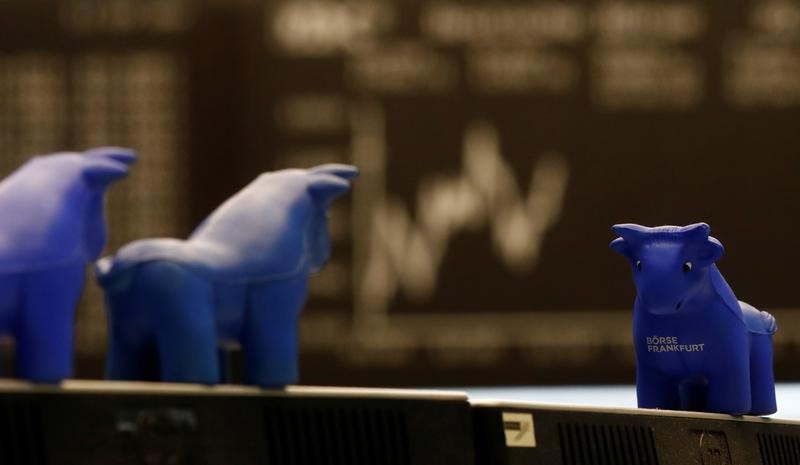TPI Composites files for Chapter 11 bankruptcy, plans delisting from Nasdaq
By Peter Nurse
Investing.com - European stock markets are expected to open lower Thursday, starting the new month on a negative note as investors fret about the combination of tightening monetary policy and slowing global growth.
At 02:00 ET (06:00 GMT), the DAX futures contract in Germany traded 0.6% lower, CAC 40 futures in France dropped 0.5%, and the FTSE 100 futures contract in the U.K. fell 0.6%.
Chinese manufacturing activity shrank in August, data from a private survey showed on Thursday, as COVID lockdowns and a drought-driven energy crunch weighed on industrial activity in the world’s second-largest economy and major regional growth driver.
The Caixin manufacturing purchasing managers index came in at 49.5 for August, a drop from July’s reading of 50.4, and below the 50 mark which indicates contraction.
Back in Europe, there was some good news as German retail sales rose 1.9% on the month in July, an annual fall of 2.6%, as consumers in the Eurozone’s biggest economy showed a degree of resilience with discretionary spending in the face of soaring inflation.
Yet, that may just be an isolated bright spot as most central banks are pressing ahead with interest rate hikes as they attempt to combat inflation at historic levels with energy prices soaring.
Data on Wednesday showed Eurozone inflation hitting a new record high, rising to 9.1% on an annual basis in August.
Germany's central bank head called on the European Central Bank to act "decisively" to bring down inflation, and an increase of 75 basis points at next week’s policy meeting is now largely priced in.
Additional economic data scheduled for this session includes German manufacturing PMI for August and Eurozone July unemployment.
In corporate news, Rio Tinto (LON:RIO) will be in the spotlight after the miner agreed to buy out Turquoise Hill Resources (TSX:TRQ) in a deal valued at about $3.3 billion. Rio already owns a 51% stake, while the deal ends almost six months of takeover talks and comes just two weeks after Turquoise Hill rebuffed a lower offer.
Oil prices weakened Thursday, after registering a third monthly decline in August, the longest losing streak since April 2020, as fears that slowing growth will hit global demand have outweighed a sizable draw in U.S. crude stockpiles.
Data from the U.S. Energy Information Administration showed a bigger-than-expected drop in crude inventories last week, falling by more than 3 million barrels, while gasoline inventories fell for a fourth straight week.
By 02:00 ET, U.S. crude futures traded 0.7% lower at $88.96 a barrel, while the Brent contract fell 0.6% to $95.04. Both benchmarks slumped around 5% last month, falling by more than 20% in the three months through August.
Additionally, gold futures fell 0.5% to $1,718.30/oz, while EUR/USD traded 0.4% lower at 1.0017.
